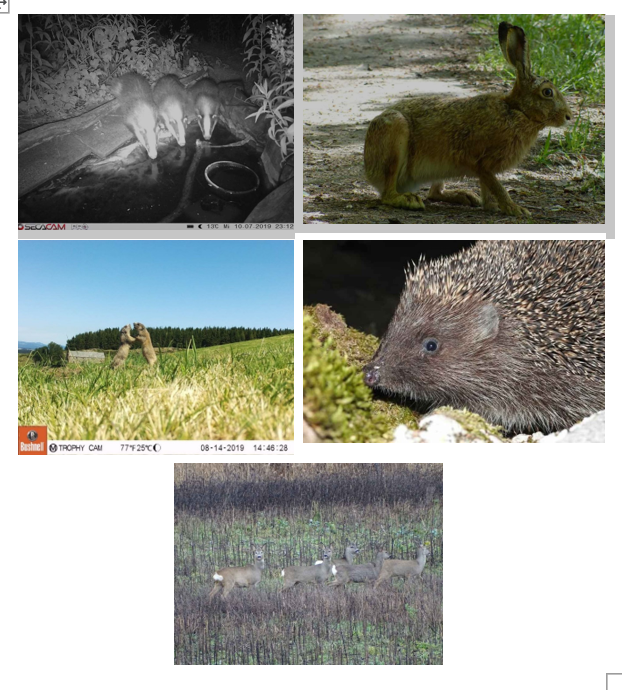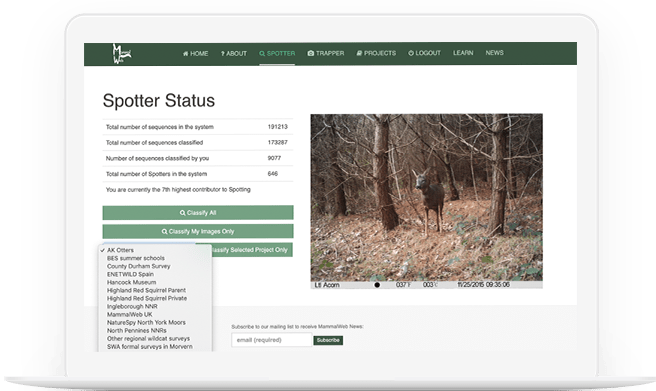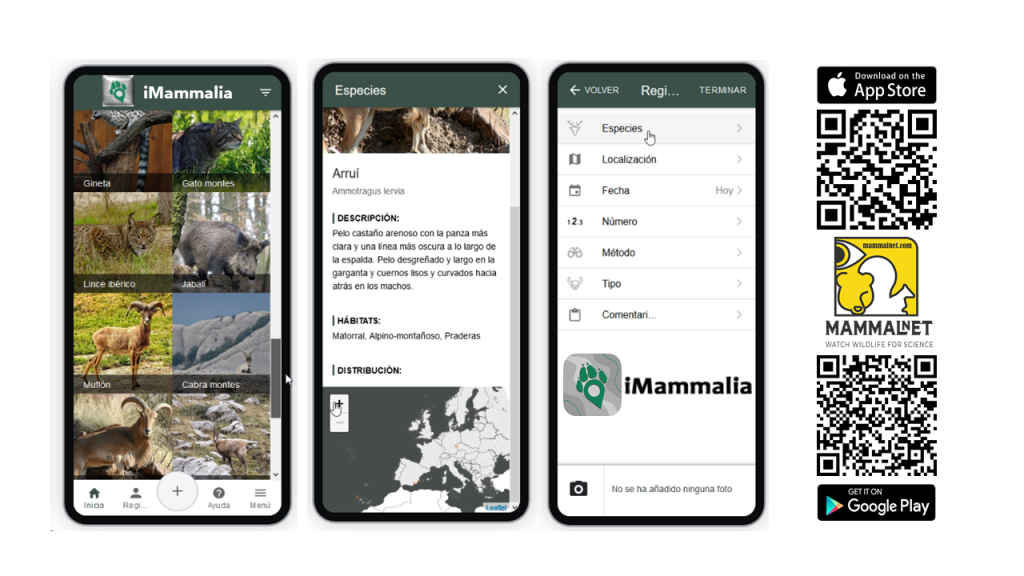Progress of Mammalnet project during 2020

We all remember 2020 as a very difficult year due to the effects of this pandemic, which presented us with new challenges. But we believe we will also remember this year because it has allowed us to reassess the value of nature and biodiversity for our own survival and well-being. There is hope because science has jumped into action and will get pandemic under control in the near future.
Only moving together will we succeed, improving our knowledge on the environment and searching for collaborative solutions. Now we are sure that citizen science can help to achieve it.
We would like to thank your participation in MammalNet and hope this new year will be full of hope and opportunities for all.
We would also like to take this opportunity to tell you about the progress of the project and some activities we are preparing for the coming months.
1) Open online course
We know that many of you are interested in knowing how to improve your participation in citizen science projects, like MammalNet, and contribute to the conservation of mammals and their habitats. So, in this open online course we have compiled and generated new contents to learn with us and encourage you to take action. We generated four modules with virtual classrooms, composed of short videos that you can visualize whenever you wish at your convenience. You can’t miss it!
2) Photo contests
During the last year we have organized competitions by selecting the photos received in iMammalia. Now with the winning images of each contest we will make the final choice, so that you can help us select the winner.
Soon we will announce new contests where you can win new prizes, we encourage you to participate sending your best records!
3) MammalWeb
If you are a phototrapping enthusiast, Mammalnet can be your tool to contribute to science, so your valuable material does not become forgotten on your hard drive or on the networks. With MammalWeb it doesn’t only count which species you have photographed; it also matters how long the cameras were active, which camera model, how it was placed and other data that gives added value to your records. In this way you can transform your images into useful data for science and conservation.
- Now it is possible uploading videos and images on MammalWeb
- A new module of dynamic maps to explore the photographed species.
- Quizzes to train and demonstrate what you have learned.
- If you are an association or group, you have the possibility to generate a project to promote citizen participation with your images
- Now MammalWeb and iMammalia are interconnected.
4) iMammalia:
This application allows the recording of occasional observations of mammals: with or without photo, both living and dead, observed or by sign, all records count. Even those species that seem very frequent to you are very useful and deserve recording. If you don’t know what species is, it doesn’t matter, send your picture and the verifiers will help you to identify it.
- We are already sharing your records at GBIF so that scientists can use them
- New languages have been added (Serbian, Macedonian) and more will be added later this year
- Possibility of registering smaller species (mice, shrews) or species that are more difficult to classify (bats, mustelids)
- Throughout 2021 we are going to incorporate new species cards to cover other European regions.
5) Agouti:
It is an online camera trap project management tool that promotes open science. It is being widely used by many researchers and nature resource managers to increase the efficiency of data management. Thanks to the feedback from project participants, some proposals have been made and we are already working on incorporating them during 2021.
It is available in English, French, Spanish, German, Croatian, Polish, Danish.
If you are interested in creating your own scientific project, MammalNet can help you.



